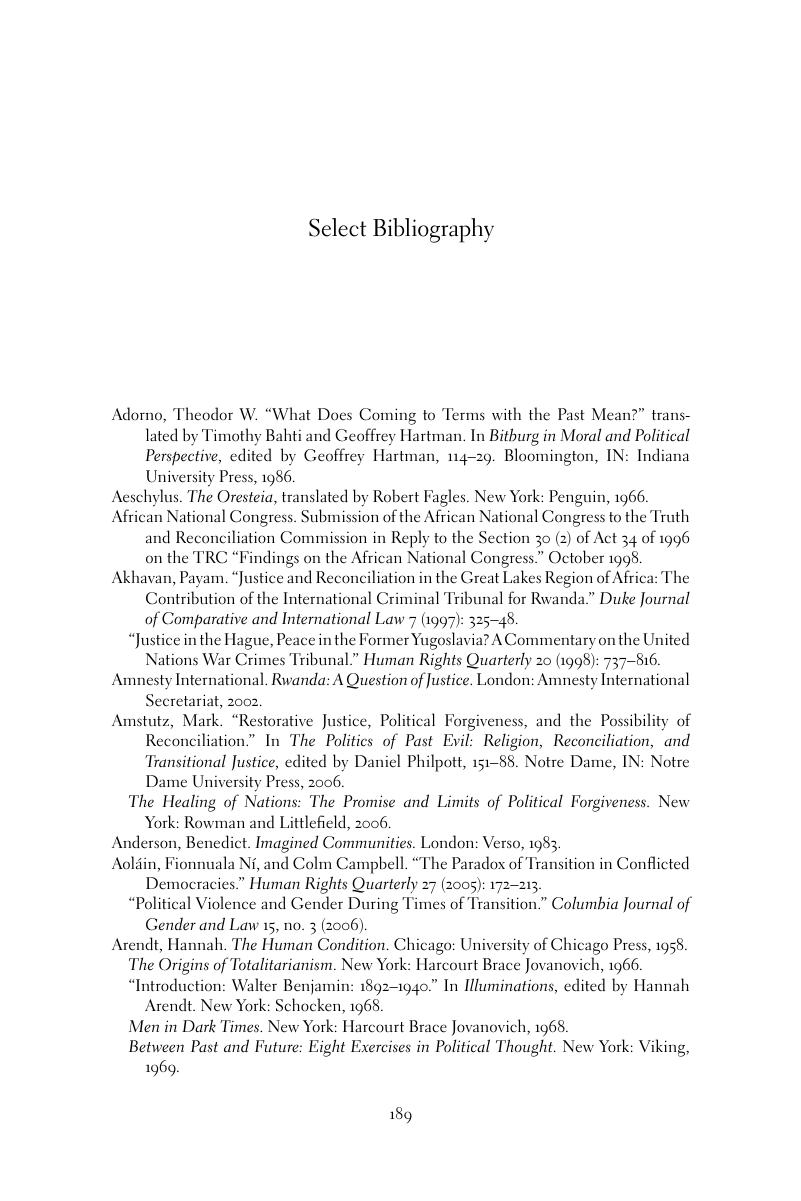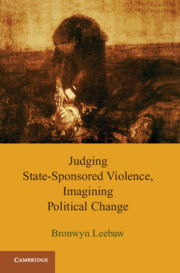Book contents
- Frontmatter
- Contents
- Acknowledgments
- 1 Introduction: Transitional Justice and the “Gray Zone”
- 2 Human Rights Legalism and the Legacy of Nuremberg
- 3 A Different Kind of Justice: South Africa's Alternative to Legalism
- 4 Political Judgment and Transitional Justice: Actors and Spectators
- 5 Rethinking Restorative Justice
- 6 Remembering Resistance
- 7 Conclusion: The Shadows of the Past
- Select Bibliography
- Index
- References
Select Bibliography
Published online by Cambridge University Press: 05 June 2012
- Frontmatter
- Contents
- Acknowledgments
- 1 Introduction: Transitional Justice and the “Gray Zone”
- 2 Human Rights Legalism and the Legacy of Nuremberg
- 3 A Different Kind of Justice: South Africa's Alternative to Legalism
- 4 Political Judgment and Transitional Justice: Actors and Spectators
- 5 Rethinking Restorative Justice
- 6 Remembering Resistance
- 7 Conclusion: The Shadows of the Past
- Select Bibliography
- Index
- References
Summary

- Type
- Chapter
- Information
- Judging State-Sponsored Violence, Imagining Political Change , pp. 189 - 204Publisher: Cambridge University PressPrint publication year: 2011



